
Geneviève Almouzni
Institut Curie/CNRS
France
EMBL Conference
This conference will take place at EMBL Heidelberg, with the option to attend virtually. Proof of COVID-19 vaccination or recovery is required for on-site attendance. Please see EMBL’s COVID-19 terms and conditions.
The EMBL Transcription and Chromatin meeting has a long-standing tradition in shaping the field of transcriptional regulation. The meeting brings together leading experts covering all aspects of transcription including cis-regulatory function, long range regulation, 3-dimensional looping, the basal transcriptional machinery, RNA polymerase regulation and function, nucleosome positioning, chromatin modifications, chromatin remodelling and epigenetic inheritance of transcriptional silencing. The meeting contains many talks selected from the abstracts that are interspersed with invited speakers, discussing the latest breakthroughs in transcriptional regulation.
The conference is designed to promote interactive discussions at both the talks and poster sessions. Given the excellent line up of speakers and the meeting’s outstanding reputation, this is a ‘must’ attend for anyone interested in cutting edge research in transcription.
The conference will include the following topics:
“I had a great time at EMBL Transcription and Chromatin. I enjoyed the variety of topics covered in the talks and I got a lot of input during the poster session. I hope one day I can also give a talk at this conference!” Laura Breimann, Max Delbrück Center for Molecular Medicine, Germany.
“This was certainly the most exciting meeting I have ever attended. The EMBL respires science of excellence. I will be back!” Marcelo Fantappie, Rio de Janeiro Federal University, Brazil.
“The EMBL Transcription and Chromatin Conference 2018 was excellent. It provided me with an invaluable opportunity to network, discuss my research with experts and learn a lot about the cutting edge research in the field. I feel very lucky to have had the opportunity to attend this conference.” Katrina Mitchell, Peter MacCallum Cancer Centre, Australia.

Institut Curie/CNRS
France
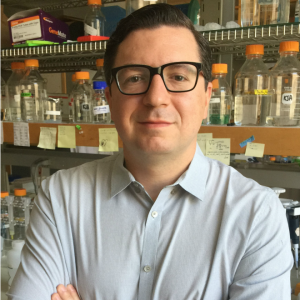
New York University
USA
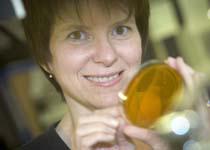
University of Pittsburgh
USA
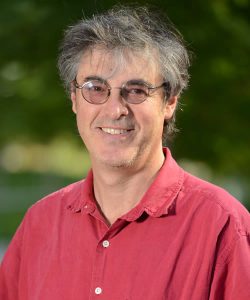
University of Colorado
USA
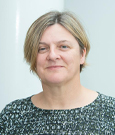
The University of Edinburgh
UK
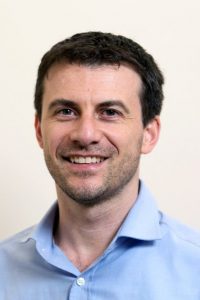
Trinity College Dublin
Ireland

University of Cambridge
UK
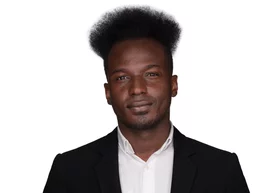
Max Planck Institute of Immunobiology and Epigenetics
Germany
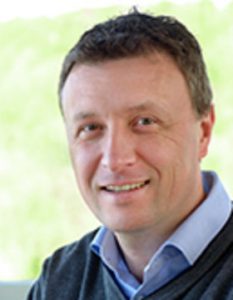
Max Planck Institute for Multidisciplinary Sciences
Germany
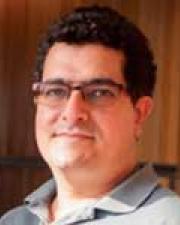
University of California, Berkeley
USA
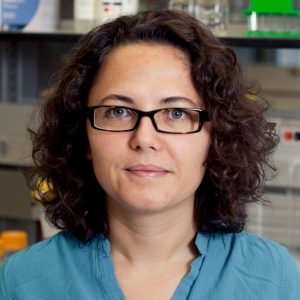
New York University
USA
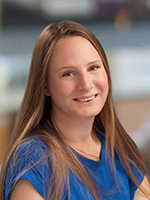
University of California, San Diego
USA
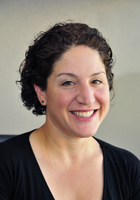
University of Wisconsin-Madison
USA
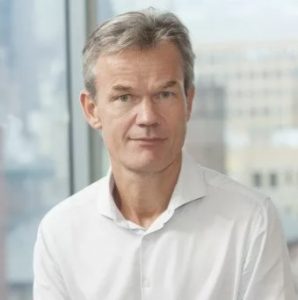
The Institute of Cancer Research
UK
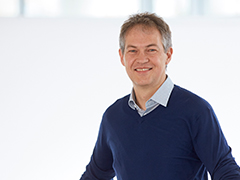
Ludwig Maximilians University of Munich
Germany
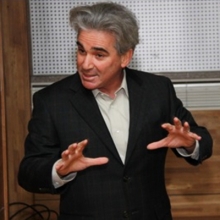
Princeton University
USA
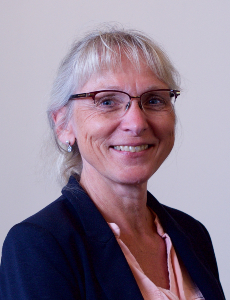
University of Southern Denmark
Denmark

University of California, Berkeley and Howard Hughes Medical Institute
USA
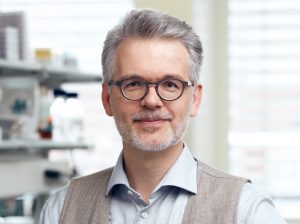
Friedrich Miescher Institute for Biomedical Research
Switzerland
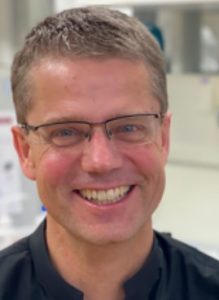
Helmholtz Zentrum München
Germany
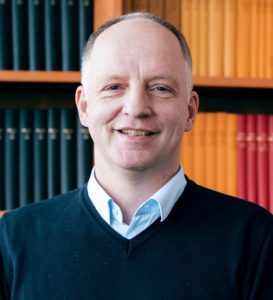
Friedrich Miescher Institute for Biomedical Research
Switzerland
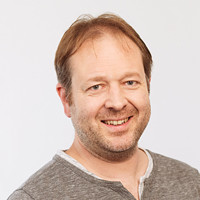
Research Institute of Molecular Pathology (IMP)
Austria

University of Colorado Boulder
USA
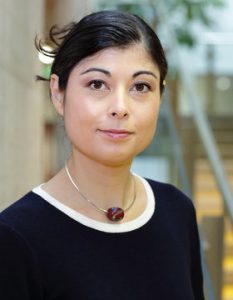
Max Planck Institute of Biochemistry
Germany
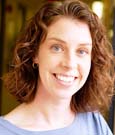
Harvard Medical School
USA

EMBL Heidelberg
Germany
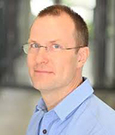
Max Planck Institute of Biochemistry
Germany
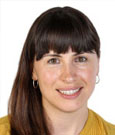
EMBL Heidelberg
Germany
Got something to say? Tweet it! #EMBLTranscript
Please find the poster listing here.
| Time | Speaker |
| 14:30-17:00 | Arrival and registration |
| 15:30-16:20 | Pre-conference workshop with LUMICKS |
| 17:00-17:15 | Opening remarks by scientific organisers |
| 17:15-19:45 | Session 1 Session chairs: Eileen Furlong & Jürg Müller |
| 17:15-17:35 | Mechanisms of chromatin transcription Patrick Cramer – Max Planck Institute for Multidisciplinary Sciences, Germany AVAILABLE ON DEMAND AFTER LIVE STREAM |
| 17:35-17:55 | Enhancer function in the 3D genome: is close enough enough? Wendy Bickmore – The University of Edinburgh, United Kingdom AVAILABLE ON DEMAND AFTER LIVE STREAM |
| 17:55-18:10 | Gene repression dynamics are modulated by transiently active regulatory elements Marit Vermunt – The Children’s Hospital of Philadelphia, United States of America LIVE STREAM ONLY |
| 18:10-18:25 | Cryo EM structure of the human Sirtuin 6 nucleosome complex Jean Paul Armache – Penn State University, United States of America LIVE STREAM ONLY |
| 18:25-18:45 | The pausing zone, the torpedo and control of RNA polymerase II elongation and termination David Bentley – University of Colorado School of Medicine, United States of America AVAILABLE ON DEMAND AFTER LIVE STREAM |
| 18:45-19:05 | Histone Variants and Chaperones in shaping chromatin and cell fate Geneviève Almouzni – Institut Curie/CNRS, France AVAILABLE ON DEMAND AFTER LIVE STREAM |
| 19:05-21:00 | Dinner in the Canteen |
| 21:00-23:00 | After dinner drinks |
| Time | Speaker |
|---|---|
| 09:00 – 12:30 | Session 2 Session chairs Maria Elena Torres Padilia & David Bentley |
| 09:00-09:20 | Super resolution imaging of transcription in living cells Ibrahim Cissé – Max Planck Institute for Immunobiology & Epigenetics, Germany LIVE STREAM ONLY |
| 09:20-09:35 | The pioneer transcription factor SOX2 is constantly required to maintain open chromatin and control pluripotent gene expression Elzo de Wit – Oncode Institute & Netherlands Cancer Institute, The Netherlands AVAILABLE ON DEMAND AFTER LIVE STREAM |
| 09:35-09:50 | Dosage matters: regulation, dynamics and consequences of histone H2A ubiquitylation Peter Verrijzer – Erasmus University Medical Center, The Netherlands AVAILABLE ON DEMAND AFTER LIVE STREAM |
| 09:50-10:05 | Targeted protein degradation defines direct targets and mechanisms of control by PAX3 FOXO1 Kristy Stengel – Vanderbilt University, United States of America AVAILABLE ON DEMAND AFTER LIVE STREAM |
| 10:05-10:25 | Decoding the Notch signal Sarah Bray – University of Cambridge, United Kingdom LIVE STREAM ONLY |
| 10:25-11:05 | Coffee Break |
| 11:05-11:25 | Catalytic and non catalytic mechanisms of chromatin modifiers Karim Jean Armache – New York University, United States of America AVAILABLE ON DEMAND AFTER LIVE STREAM |
| 11:25-11:40 | G quadruplexes are promoter elements controlling nucleosome exclusion and RNA polymerase II pausing Jean Christophe Andrau – Institut de Génétique Moléculaire de Montpellier (IGMM), France AVAILABLE ON DEMAND AFTER LIVE STREAM |
| 11:40-11:55 | PR DUB preserves Polycomb repression by preventing excessive accumulation of H2Aub, an antagonist of chromatin compaction Jacques Bonnet – Max Planck Institute of Biochemistry, Germany AVAILABLE ON DEMAND AFTER LIVE STREAM |
| 11:55-12:10 | The RNA binding surface of PRC2 is required for the histone methylation of chromatin in an RNA independent manner Chen Davidovich – Monash University, Australia LIVE STREAM ONLY |
| 12:10-12:30 | Molecular principles of PRC2 regulation Eva Nogales – University of California, Berkeley, United States of America AVAILABLE ON DEMAND AFTER LIVE STREAM |
| 12:30-14:15 | Lunch |
| 14:15-16:45 | Poster Session 1 (odd) |
| 16:45-19:00 | Session 3 Session chairs Alex Stark and Susanne Mandrup |
| 16:45-17:05 | Affinity optimizing enhancer variants disrupt development and drive disease Emma Farley – University of California, San Diego, United States of America AVAILABLE ON DEMAND AFTER LIVE STREAM |
| 17:05-17:25 | How genomes encode time Michael Levine – Princeton University, United States of America AVAILABLE ON DEMAND AFTER LIVE STREAM |
| 17:25-17:40 | Regulating gene expression in 3D during embryonic development Yad Ghavi Helm – Institute of Functional Genomics of Lyon (IGFL), France AVAILABLE ON DEMAND AFTER LIVE STREAM **This talk is now virtual** |
| 17:40-17:55 | The logic of native enhancer promoter compatibility and cell type specific gene expression tuning Chunaram Choudhary – University of Copenhagen, Denmark AVAILABLE ON DEMAND AFTER LIVE STREAM |
| 17:55-18:10 | Short break |
| 18:10-18:25 | Control of enhancer activity by DNA methylation Arnaud Krebs – EMBL Heidelberg, Germany AVAILABLE ON DEMAND AFTER LIVE STREAM |
| 18:25-18:40 | The double edged sword of transcription factor clustering Tineke Lenstra – Netherlands Cancer Institute, Oncode Institute, The Netherlands LIVE STREAM ONLY |
| 18:40-19:00 | Live cells single molecule biochemistry: what can we learn by interrogating molecular interactions in their cellular context? Xavier Darzacq – University of California, Berkeley, United States of America AVAILABLE ON DEMAND AFTER LIVE STREAM |
| 19:00-21:00 | Dinner |
| 21:00-23:00 | After dinner drinks |
| Time | Speaker |
|---|---|
| 09:00 – 12:30 | Session 4 Session chairs Karim-Jean Armache & Genevieve Almouzni |
| 09:00-09:20 | Structural mechanism of extranucleosomal DNA readout by the INO80 complex Karl Peter Hopfner – Ludwig Maximilians University of Munich, Germany AVAILABLE ON DEMAND AFTER LIVE STREAM |
| 09:20-09:35 | Dynamic positioning of H2A.Z throughout the cell cycle safeguards the pluripotent gene expression program Armelle Tollenaere – EPFL, Switzerland AVAILABLE ON DEMAND AFTER LIVE STREAM |
| 09:35-09:50 | Integrator endonuclease drives promoter proximal termination at all RNA polymerase II transcribed loci Chad Stein – Harvard Medical School, United States of America AVAILABLE ON DEMAND AFTER LIVE STREAM |
| 09:50-10:05 | An evolutionary advanced mechanism of gene expression control: the regulation of SWI/SNF by the histone variant H2A.B David Tremethick – The Australian National University / The John Curtin School of Medical Research, Australia LIVE STREAM ONLY |
| 10:05-10:25 | Probing the direct effects of the Paf1 complex on transcription and histone modifications Karen Arndt – University of Pittsburgh, United States of America AVAILABLE ON DEMAND AFTER LIVE STREAM |
| 10:25-11:05 | Coffee Break |
| 11:05-11:25 | Mechanistic studies of TFIIH kinase CDK7 reveal regulatory roles at all transcriptional stages and coordination with other kinases Dylan Taatjes – University of Colorado Boulder, United States of America AVAILABLE ON DEMAND AFTER LIVE STREAM |
| 11:25-11:40 | TAF1 dependent co translational assembly of the basal transcription factor holo TFIID Laszlo Tora – Institut de Génétique et de Biologie Moléculaire et Cellulaire (IGBMC), France LIVE STREAM ONLY |
| 11:40-11:55 | Structural basis of nucleosome retention during transcription elongation Lucas Farnung – Harvard Medical School, United States of America AVAILABLE ON DEMAND AFTER LIVE STREAM |
| 11:55-12:10 | Structural basis of TFIIIC dependent RNA Polymerase III transcription initiation Anna Talyzina – Northwestern University, United States of America LIVE STREAM ONLY |
| 12:10-12:30 | Finding your place: Transcription factors as sensors and modifiers of chromatin Dirk Schübeler – Friedrich Miescher Institute for Biomedical Research, Switzerland AVAILABLE ON DEMAND AFTER LIVE STREAM |
| 12:30-14:15 | Lunch |
| 14:15-16:45 | Poster Session 2 (even) |
| 16:45-19:00 | Session 5 Chaired by Emma Farley & Kristian Helin |
| 16:45-17:05 | Enhancer networks controlling adipocyte lineage determination Susanne Mandrup – University of Southern Denmark, Denmark LIVE STREAM ONLY |
| 17:05-17:25 | Novel players in chromatin Robert Schneider – Helmholtz Zentrum München, Germany LIVE STREAM ONLY |
| 17:25-17:40 | Cell type differential targeting of SETDB1 prevents aberrant CTCF binding, chromatin looping, and cis regulatory interactions Lut Fei Tam – Hong Kong University of Science and Technology, Hong Kong AVAILABLE ON DEMAND AFTER LIVE STREAM |
| 17:40-17:55 | SOA confers X chromosome dosage compensation in Anopheles gambiae mosquitoes Claudia Keller Valsecchi – Institute of Molecular Biology (IMB), Germany LIVE STREAM ONLY |
| 17:55-18:10 | Short break |
| 18:10-18:25 | RNA polymerase II is essential for enhancer promoter contacts and antagonises CTCF looping Argyris Papantonis – University Medical Center Goettingen, Germany AVAILABLE ON DEMAND AFTER LIVE STREAM |
| 18:25-18:40 | The Mediator complex regulates enhancer promoter interactions Marieke Oudelaar – Max Planck Institute for Multidisciplinary Sciences, Germany AVAILABLE ON DEMAND AFTER LIVE STREAM |
| 18:45-19:00 | Acute perturbation strategies for interrogating the elongating RNA polymerase II and its role in malignancies Ali Shilatifard – Northwestern University Feinberg School of Medicine, United States of America LIVE STREAM ONLY |
| 19:00-21:00 | Dinner |
| 21:00-23:00 | After dinner drinks |
| Time | Speaker |
|---|---|
| 09:00 – 12:50 | Session 6 Chaired by Wendy Bickmore and Melissa Harrison |
| 09:00-09:20 | Regulation of condensin translocation by topoisomerases I and II in C. elegans Sevinc Ercan – New York University, United States of Americ AVAILABLE ON DEMAND AFTER LIVE STREAM **This talk is now virtual** |
| 09:20-09:40 | Histone Demethylases KDM2A/2B safeguard the Oocyte Methylome and Embryonic Development Antoine Peters – Friedrich Miescher Institute for Biomedical Research, Switzerland LIVE STREAM ONLY |
| 09:40-09:55 | Targeted disruption of transcription bodies causes widespread activation of transcription Nadine Vastenhouw – University of Lausanne, Switzerland LIVE STREAM ONLY |
| 09:55-10:10 | TADs can still establish during early embryogenesis in the absence of individual insulator proteins, but cause locus specific effects Eileen Furlong – EMBL Heidelberg, Germany AVAILABLE ON DEMAND AFTER LIVE STREAM |
| 10:10-10:25 | Control of transcriptional identity by Polycomb group proteins Diego Pasini – European Institute of Oncology, Italy LIVE STREAM ONLY |
| 10:25-10:45 | Mechanisms of zygotic genome activation in mouse embryos Kikue Tachibana – Max Planck Institute of Biochemistry, Germany LIVE STREAM ONLY |
| 10:45-11:25 | Coffee Break |
| 11:25-11:45 | Heterochromatin formation and transcriptional regulation at the beginning of mammalian developoment Maria Elena Torres-Padilla – Helmholtz Zentrum München, Germany LIVE STREAM ONLY |
| 11:45-12:00 | Alu repeats at the boundaries of regulatory elements shape the epigenetic environment of immune genes in T cells Christian Muchardt – Sorbonne Université, France LIVE STREAM ONLY |
| 12:00-12:15 | Polycomb Repressive Complex 2 establishes H3K27me3 at developmental genes in oocytes and impacts offspring development – Ruby Oberin Hudson Institute of Medical Research and Monash University, Australia AVAILABLE ON DEMAND AFTER LIVE STREAM |
| 12:15-12:30 | The chromatin landscape during early embryo development at single cell resolution Isabel Guerreiro – Hubrecht Institute, The Netherlands LIVE STREAM ONLY |
| 12:30-12:50 | H3K4me3 regulates RNA polymerase II promoter proximal pause release Kristian Helin – Memorial Sloan Kettering Cancer Center, United States of America LIVE STREAM ONLY |
| 12:50-14:30 | Lunch |
| 14:30-17:00 | Poster session 3 (odd and even numbers) |
| 17:00-19:30 | Session 7 Chaired by Karen Adelman & Peter Verrijzer |
| 17:00 – 17:20 | Interplay between PRC2 subcomplexes and canonical PRC1 in development and disease Adrian P. Bracken – Trinity College Dublin, Ireland AVAILABLE ON DEMAND AFTER LIVE STREAM |
| 17:20 – 17:40 | Pioneering the developmental frontier Melissa Harrison – University of Wisconsin Madison, United States of America LIVE STREAM ONLY |
| 17:40 – 17:55 | An autoregulatory feedback loop converging on H2A ubiquitination drives synovial sarcoma Ana Banito – German Cancer Research Center (DKFZ), Hopp Children Cancer Center (KiTZ), Germany AVAILABLE ON DEMAND AFTER LIVE STREAM |
| 17:55 – 18:10 | Short break |
| 18:10 – 18:25 | Distinct promoter enhancer communication patterns during developmental gene activation Angelika Feldmann – German Cancer Research Center (DKFZ), Germany AVAILABLE ON DEMAND AFTER LIVE STREAM |
| 18:25 – 18:40 | On microscope staging of live cells reveals changes in the dynamics of transcriptional bursting during differentiation Ed Tunnacliffe – University of Oxford, United Kingdom AVAILABLE ON DEMAND AFTER LIVE STREAM |
| 18:40 – 19:00 | Decoding transcriptional regulation in Drosophila Alexander Stark – Research Institute of Molecular Pathology (IMP), Austria LIVE STREAM ONLY |
| 19:00 – 19:15 | Closing remarks |
| 19:15 – 20:45 | Conference dinner |
| 20:45-22:15 | After dinner drinks / live music (outside) |
There is currently a waiting list in place for on-site participation. We do expect a few places to become available and for those who register for the waiting list, we will aim to contact you by the end of June to let you know if you can attend.
On-site registration fees include admission, conference materials, COVID-19 safety measures, meals and coffee breaks. Participants are expected to book and pay their own accommodation and travel expenses.
Virtual registration fees include access to all of the talks (livestreamed and on demand) and facility to submit questions.
| On-site Academia | €775 |
| On-site PhD Student | €675 |
| On-site Industry | €975 |
| Virtual Academia | €175 |
| Virtual PhD Student | €125 |
| Virtual Industry | €225 |
NO visa support letters will be issued until payment of the registration fee is confirmed.
Accredited journalists may be eligible to register for complimentary press registration. Registrants may be required to provide accreditation or equivalent proof of press membership after registration. Please contact Nathalie Sneider for more information. Please note that we do not offer complimentary registrations for editors of scientific journals.
Registration will be on a first-come first-served basis. Your place can only be confirmed after payment of the registration fee. If you are added to our waiting list, please consider taking advantage of our offerings to participate virtually.
On-site participants: Types of payments accepted are international bank transfers and credit card payments.
Virtual participants: We are only able to accept card payments. In exceptional cases we can accept bank transfers. Please contact Nathalie Sneider for details.
Only registered participants attending the on-site event are eligible to submit an abstract. Abstracts will not be accepted from virtual participants.
After you have logged in and successfully registered, you will receive an email asking you to submit your abstract. Click on the link provided and enter your abstract in the text box provided. Alternatively you can submit your abstract by clicking on the link on the confirmation page directly after registering. The same login credentials are used for both processes.
Please note:
Title: The title should not exceed 20 words. Only the first word of the title should start with a capital letter and the rest of the title should be in lowercase.
Authors and affiliations: Please fill in the author’s details as requested in the online form. The compulsory details are: First Name, Last Name, Organisation Name (Affiliation or Company), Country and Email. Mark only one author as the role of First author and please don’t forget to indicate who will be presenting. The order of the authors will be listed as follows: First Author, Co-First Author (alphabetically if multiple), co-author(s) (in the order added by the submitter).
Presentation types: When submitting your abstract, you can apply for an oral or poster presentation. A selection process will take place with the results announced 2-3 weeks after the abstract submission deadline.
Please check our FAQs pages for further information on how to submit an abstract.
Limited financial assistance is provided by the EMBL Advanced Training Centre Corporate Partnership Programme and EMBO in the form of both registration fee waivers and travel grants. Availability is limited to participants attending on-site events in Heidelberg and will be indicated during the abstract or motivation letter submission process.
Your place in the meeting is only confirmed by paying the registration fee, which is mandatory even when receiving a fee waiver.
The fee waiver will cover the registration sum that you have paid to attend the course or conference.
The travel grant will cover the cost of travel (airfare, train, bus, taxi, accommodation, visa, and/or registration fees*) and is provided up to specified caps which are normally as follows:
– up to €400 for participants travelling to an EMBL Course, EMBL Conference or EMBO|EMBL Symposium from within Europe.
– up to €1000 for participants travelling to an EMBL Course, EMBL Conference or EMBO|EMBL Symposium from outside Europe.
– up to €500 for any participant travelling to an EMBO Practical Course or EMBO Workshop.
– up to €1000 for any participant working in Chile, India, Singapore or Taiwan travelling to an EMBO Practical Course or EMBO Workshop.
*Registration fees are only covered for EMBO Practical Courses or EMBO Workshops
The organisers may reduce the grant cap to accommodate more participants. Recipients will be notified of their travel cap amount when they are informed of the outcome of their application. Original receipts must be provided with your signature for all costs incurred within two months of completion of travel. Scanned copies cannot be accepted.
You may apply for financial assistance when submitting your motivation letter for courses, and abstract for conferences. In your application you will be asked to answer questions regarding why your lab cannot fund your attendance and how your attendance will make a difference to your career. Application for financial support will not affect the outcome of your registration application.
The scientific organisers will select the recipients of all financial assistance during the motivation letter or abstract selection process. Results will be announced approximately 6-8 weeks before the event start date, however for some events this may be delayed. Selection results do not impact your admission to the meeting. Selection is based on your current work or study location, the reasons for needing financial support and the impact this event will have on your career.
Costs will be reimbursed after the meeting only once a reimbursement form and original receipts (from travel costs) have been received.
View our list of external funding opportunities and information on attending a conference as an event reporter.
For further information about financial assistance please refer to the FAQ page.
Accommodation is not included in the conference registration fee.
As further changes in our events are possible due to COVID-19, you should book flights, trains and hotels with flexible options and favourable cancellation conditions.
The hotels below have rooms on hold for participants until Tuesday 26 July 2022, in some cases at special rates. Please quote the booking code TRM22-01 and confirm the exact price of the room with the hotel directly.
Conference shuttle buses are free of charge for participants, and depart from designated bus stops near the hotels to EMBL and back, mornings and evenings.
Download the bus schedule here.
The bus stops for this conference are:
View Conference shuttle bus stops and hotels in a larger map. Please note that not every bus stop will be used for every event.
Address: EMBL, Meyerhofstraße 1, 69117 Heidelberg, Germany. For further information on getting to EMBL Heidelberg visit Public Transportation to the Venue. For information about accommodation and local transportation please refer to the FAQ page.
Please note that only on-site participants are able to submit abstracts and participate in the poster sessions.
We are using an event platform for this conference. More information about the platform will be shared ahead of the conference.
Additional information can be found in our Code of Conduct.
It is important to stay healthy and move around, especially when you are attending an event virtually. We have put together a few coffee break stretches and yoga videos in the conference platform for you to enjoy during the event.
Please use the Q&A function in the event platform.
If you have any other questions, you can go to the Help Desk in the event platform. Click on ‘more’ on the top menu and click Help Desk.
The programme is planned based on the Europe/Berlin time zone, unless otherwise stated. Please take your time zone into consideration when planning your attendance.
Please find additional information including FAQs, terms and conditions, COVID-19 safety policy and travelling to EMBL on our Information for Participants page.
COVID-19 information for on-site events at EMBL Heidelberg can be found in our COVID-19 FAQs.
Bronze sponsors
Event sponsor
Genome Research, a Cold Spring Harbor Laboratory Press journal
Media partners
EMBO Journal, an EMBO Press journal
Genes and Development, a Cold Spring Harbor Laboratory Press journal
International Union of Biochemistry and Molecular Biology
Open Biology, a Royal Society journal
Sponsorship opportunities
We offer a variety of event sponsoring possibilities, with the flexibility to select a set sponsorship package or combine individual sponsorship options to suit your event budget. Discounts are available for companies sponsoring multiple events at EMBL Heidelberg. View other conferences, or contact sponsorship@embl.de for further information.
If you are interested in becoming a media partner of this event, please visit our media partnerships webpage.
Date: 27 - 30 Aug 2022
Location: EMBL Heidelberg and Virtual
Deadline(s):
Abstract submission: Closed
Registration (On-site): Closed
Registration (Virtual): Closed
Organisers:
Contact: Nathalie Sneider